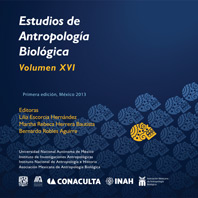Perception of the body in East, seen from the practice of martial arts in Japan
DOI:
https://doi.org/10.22201/iia.14055066p.2013.56748Keywords:
martial arts, body practice, body perception, body experienceAbstract
The ideas about the body have certain peculiarities in the Eastern countries. Philosophy, religion and certain practices, such as meditation, influence the actions in the martial arts, considered here as bodily practices, and they are thought completely differently in the East over the West. In the case of Japan, philosophies such as Buddhism, Zen and Shinto, coupled with a period of war for almost a thousand years, has formed an idea about the life and body, which generates both concepts and practices like martial arts considered as a melting pot where these ideas can be read and their changes through history saw, whether it be considered as techniques of attack and/or defense, as a means of spiritual expression, or as technical human development. The purpose of this paper is to describe the history of what we call martial arts and try to explain how, to be carried to different cultural contexts, participants may experience some difficulty in expressing both the sense of movements and the perception of the body.
Downloads
Downloads
Published
How to Cite
Issue
Section
License

http://creativecommons.org/licenses/by-nc-nd/4.0/


